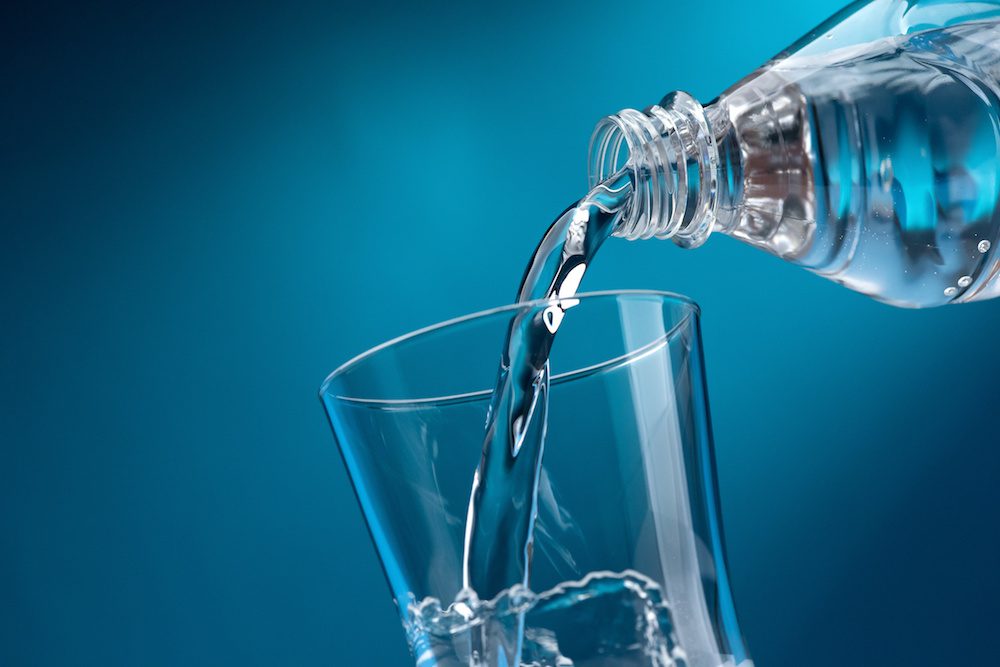
Other than cranking up the air conditioner, there is not much you can do to fully escape the Texas heat. On top of that, temperature controlled rooms tend to dry out the air and the naked heat outside makes us sweat. Either way, many of us are likely to get a little dehydrated this summer. That’s why, right now, it is especially important to remember to drink lots of water. Though steady sipping on cool water throughout the day is best, it is not the only way to stay hydrated.
Before we get into that, though, it may help to understand what dehydration is exactly, and why it is something to avoid.
What is dehydration
While everyone’s makeup is a little different, about 60 percent of an adult human’s body is composed of water. This water helps us regulate temperature, digest food, lubricate joints, and deliver oxygen throughout the body.
Being just five percent dehydrated can make you feel restless and irritable, according to the World Health Organization (WHO). The good news is that when you are a little dehydrated you tend to feel thirsty, so you drink up. Unfortunately thirst tends to go away if dehydration gets worse. Severe dehydration, which WHO defines as more than a 10 percent fluid deficit, can lead to loss of consciousness. Other signs of dehydration include the following:
- Lethargy
- Headaches
- Sunken eyes
- Pinched skin goes back slowly
Why is dehydration bad?
Besides the fact that severe dehydration can cause the body to shut down completely, less extreme, but chronic dehydration can also lead to serious health issues. All the organs and systems need a steady supply of water to function at their best. With less water circulating in your blood, your heart has to work harder and your brain can become damaged. Your immune system also loses strength.
Dry air in particular can dry out your nasal passages and upper airway. Besides being uncomfortable, this makes it easier for disease-causing bacteria and viruses to set up shop there. When we are fully hydrated, a small (but normal) amount of mucus throughout our sinuses and airways helps flush those baddies away.
How much water do you need?
The National Academy of Sciences recommends that women take in approximately 2.7 liters (91 ounces) of water each day. For men, they recommend approximately 3.7 liters (125 ounces) each day. They also calculate that about 80 percent of that intake typically comes from drinking liquids and the other 20 percent comes from food.
Keeping yourself at the right level of hydration requires more than just drinking a set amount of water each day, though. It really comes down to balancing water intake versus water loss.
Hot days like we are experiencing in Texas right now will cause more water to leave your body as sweat. When you exercise in the heat, that gets worse and you also lose water through rapid breathing. It is important to replace that water by taking more in that day.
When thinking about getting enough water in each day, think beyond water, especially if you are one of those people who simply doesn’t like to drink a lot of water (funny enough that is a real thing despite the body’s need for it).
Eat plenty of liquid-rich foods:
We get a lot of the water our body needs from our food, and not just from smoothies. Fresh fruits and vegetables are a great source of water. So are cooked veggies and fruits (hello blueberry pie – in moderation of course).
Limit alcohol
Consuming too much alcohol has a diuretic effect that can cause dehydration. This happens by inhibiting the kidneys from functioning properly and by making you urinate more often.
Liquids other than water also count
While we encourage you to limit your intake of sugary drinks for other health reasons, don’t forget about all the other things you can drink besides water. This even includes caffeinated beverages like coffee, tea, and diet soda.
For the most part, you can let your thirst be your guide. Sometimes, though, dehydration can sneak past you, so make hydration a priority this summer. If you have concerns about your own health and hydration contact our office and make an appointment today. If you feel like you might be suffering from severe dehydration, however, don’t wait to see us; seek emergency medical attention right away.

